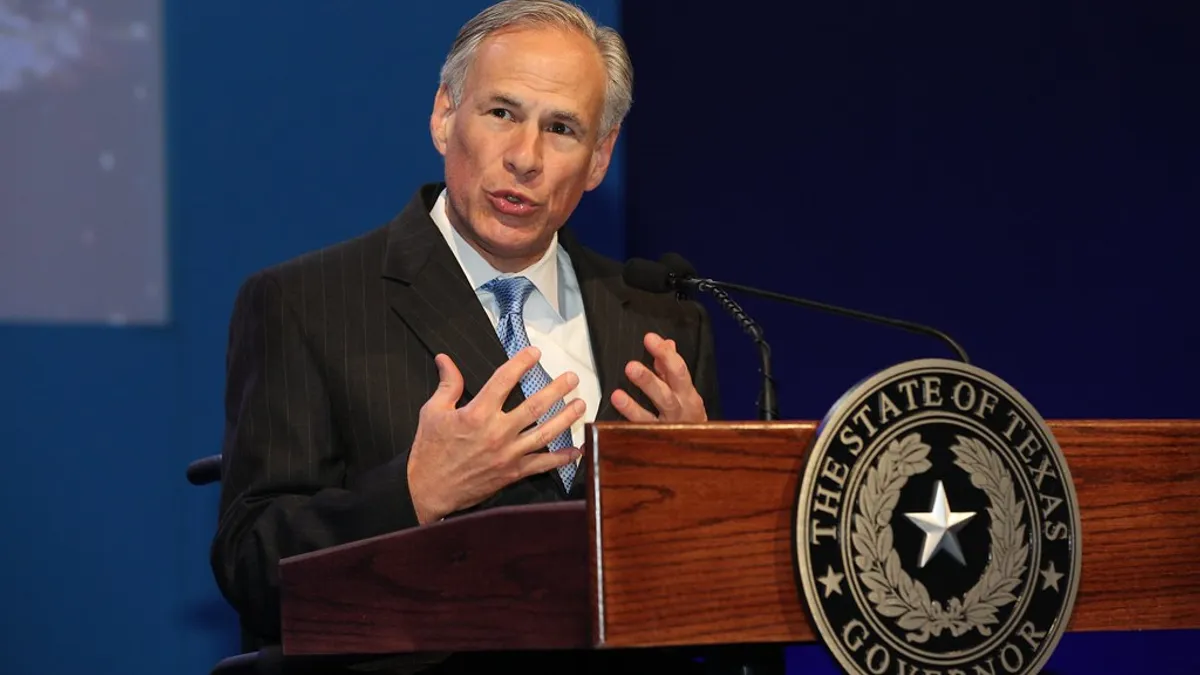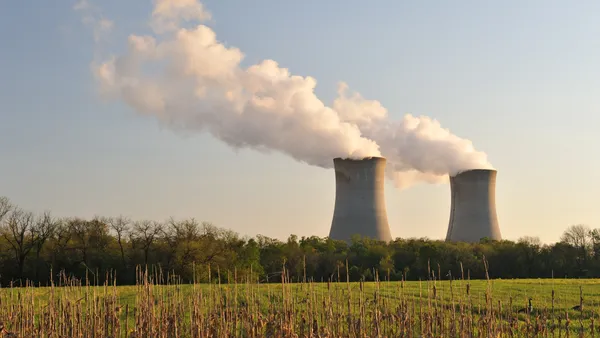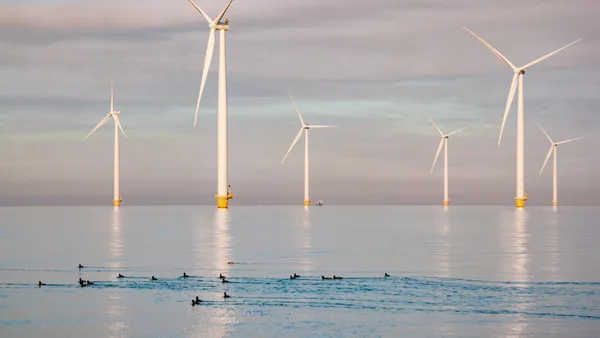UPDATED: June 9, 2021: Gov. Greg Abbott, R, signed Senate Bills 2 and 3 into law on Tuesday, requiring power facilities to weatherize against extreme weather and reforming the Electric Reliability Council of Texas.
"These laws will improve the reliability of the electric grid and help ensure these problems never happen again," Gov. Abbott said in a statement.
Dive Brief:
- A Texas bill mandating weatherization for power generation and transmission, and implementing some market reforms after this winter's storms caused widespread outages, has been approved by both the state House and Senate and is now being considered by Gov. Greg Abbott.
- Lawmakers dropped provisions that would have required renewable energy providers to pay for backup generation, after clean energy advocates argued the rule penalized those resources unfairly.
- While the bill addresses the majority of concerns raised during the February storms, it does not address funding for the required weatherization upgrades and could result in higher electricity prices in the long-term, according to Caitlin Smith, vice president of Texas-based consulting firm AB Power Advisors.
Dive Insight:
The Texas legislature sent Senate Bill 3 to Abbott on Tuesday after a flurry of negotiations over the holiday weekend resulted in a bill acceptable to both the House and Senate. Both chambers had previously approved different versions of the bill, which had to be reconciled.
Both the House and the Senate voted to remove language from the original bill that required generators of renewable energy to guarantee a reliable output, or else pay for the acquisition of an alternative source of energy to offset their intermittency. However, the House and the Senate differed on whether to require a study of the costs and benefits of renewable energy, and how to address electricity pricing structures that resulted in some customers receiving power bills for thousands or tens of thousand of dollars, Smith said.
The final version settled on mandating a renewable energy study and requires changes to the state's energy scarcity pricing rules.
“Along the way, there was that finger-pointing that made [SB 3] controversial,” Smith said of the debate around the role of renewables in this winter's outages. “I think this ended up addressing, and I don't mean solving, but addressing everything that was a huge problem.”
The bill also creates a winter storm emergency alert plan and creates a Texas Energy Reliability Council.
The bill does leave some loose ends that remain to be addressed, Smith said. The bill did not address the need for coordination between electrical generators and natural gas suppliers, leaving generators who lose access to natural gas during an emergency without clear recourse.
Changes to scarcity pricing could also impact Texas electric bills, Smith said.
“We're unsure how this is going to affect” electric generators, Smith said. “I think it's going to be, they get their money differently. ... I think we will see a lower price cap [on what generators may charge for power in the event of a shortage]. I don't know that we will see lower prices on average. I would assume we will see higher prices on average.”














